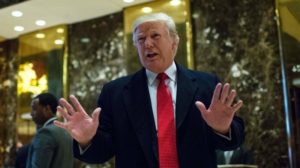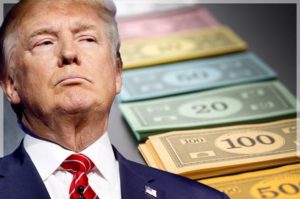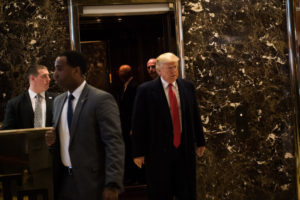An argument making the rounds for the past several months goes something like this: Donald J. Trump is going to be in direct violation of the U.S. Constitution at the moment he takes the oath of office as president of the United States of America.
The source of the violation? His myriad business interests.
This isn’t just a Democratic Party point of view. Republicans also are buying into a notion that Trump’s refusal to separate himself completely from his business dealings is creating a monstrous potential for conflict of interest.
According to National Public Radio: “A president is not permitted to receive cash and other benefits from foreign governments,” Norm Eisen tells Fresh Air‘s Terry Gross. “And yet, Donald Trump is getting a steady flow of them around the world and right here in the United States.”
The “emoluments clause” is front and center in this debate. It’s written into the U.S. Constitution. It should be called the “anti-bribery clause.” Trump has refused to divest his myriad business interests; he has refused to put them into a blind trust.
NPR, quoting Richard Painter, former ethics lawyer for President George W. Bush, reports: “The president needs to focus on protecting the United States and American interests in a very dangerous world,” Painter says. “I really hope that President Trump takes the steps he needs to, to be free of conflict of interest in that endeavor.”
There are questions about whether Trump’s business dealings abroad could interfere with U.S. policy. Trump refuses to release his tax returns. He declines to provide detailed financial reports. He keeps saying this discussion is a media creation.
Holy cow, dude! You’ve got some serious experts on this stuff suggesting you’re going to violate the Constitution you will swear to “defend and protect.”
Does a direct violation of that sacred oath create a reason for, um, impeachment?
Let’s all wait for this to play out.



